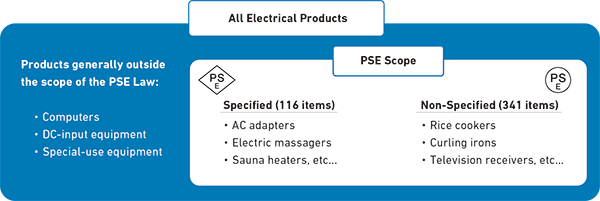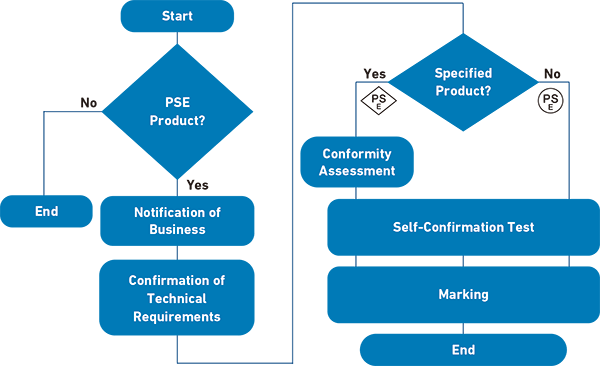The PSE Law and its regulations specify mandatory electrical safety and EMI requirements for electrical products sold in Japan.
457 product categories have been designated pursuant to the PSE Law (as of December 2018).

Under the PSE Law, electrical products are divided into two risk-based categories.
Products with a history of accidents in the marketplace, or products which are likely to cause injury, are termed “Specified Electrical Products” and require third-party assessment by a METI-Registered Conformity Assessment Body (Registered CAB). Specified Electrical Products must display the diamond PSE mark.

Low-risk products are termed "Non-Specified Electrical Products" and are subject to a self-declaration scheme. Non-Specified Electrical Products must be marked with the circle PSE mark.

Most household electrical products are Non-Specified Electrical Products and are subject to the self-declaration procedure. However, if you would like to show customers that your brand is committed to exceptional product safety, it is possible to obtain a voluntary certification called the S-JQA mark. The S-JQA mark can be displayed next to the circle PSE mark and is recognized by many consumers and retailers in Japan.

The chart below shows a general overview of the regulatory process for electrical products in Japan.
See the JQA guide or METI guide for a detailed explanation of each step.
